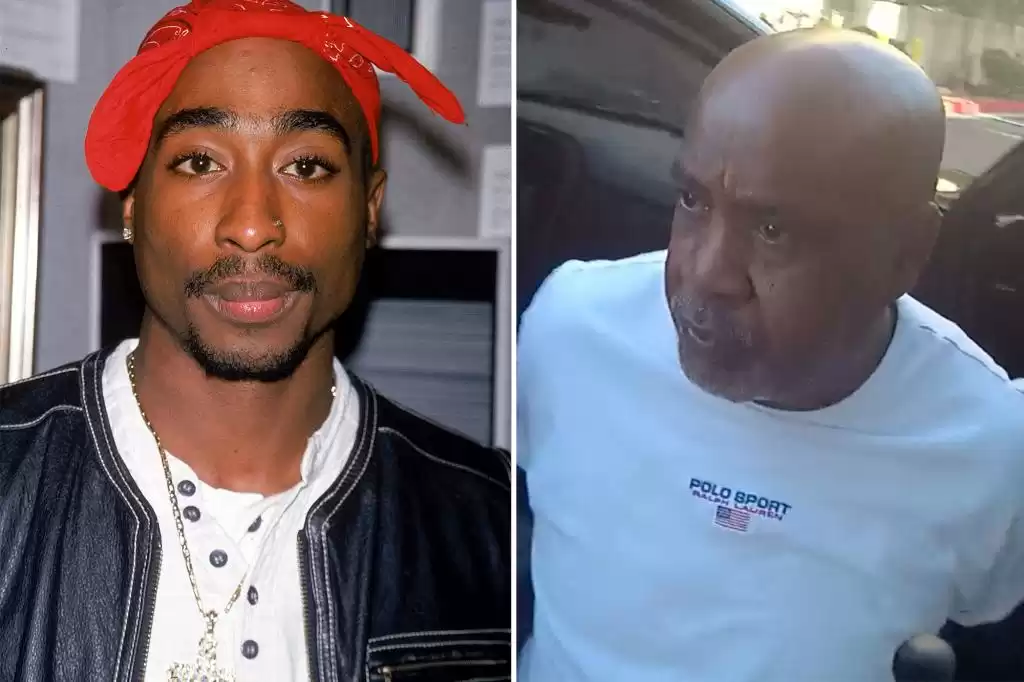Cops waited over two decades to arrest Tupac murder suspect
Retired detective claims police delayed arresting a man involved in Tupac Shakur's killing to gather more evidence.
In a stunning revelation, a retired detective who once investigated Tupac Shakur's murder has claimed that the police deliberately waited for years before arresting the man who openly confessed his involvement in the crime. The motive behind this strategic move was to gather a comprehensive compilation of confessions, ensuring an airtight case against the suspect.
The man in question, Duane "Keefe D" Davis, was recently arrested by the Las Vegas Police and charged with murder. Five years ago, Davis confessed in a documentary interview that he was present in a white Cadillac, from which a back-seat shooter targeted Tupac's BMW in Las Vegas back in 1996. Davis, along with other individuals in the Cadillac, were reportedly affiliated with the notorious Los Angeles street gang, the South Side Compton Crips. Tupac, on the other hand, was associated with the rival LA gang, the Bloods.
Greg Kading, a retired homicide detective from the Los Angeles Police Department, shed light on the police's decision to delay Davis' arrest. Kading speculated that by allowing Davis to share his ties to the shooting in interviews and subsequently publish a tell-all memoir, the Las Vegas PD aimed to gather additional evidence to strengthen their case. The intention was to create a situation where Davis had provided multiple confessions, making it difficult for him to dismiss his previous claims as mere boasting or fabrications.
Kading explained, "The perception is that it's going to be hard for him at this point to say, 'Hey, I was just kind of boasting, making stuff up.'" The strategic delay in arresting Davis was a calculated move to ensure that the evidence against him was robust and undeniable.
In 2018, Davis boldly shared details about the drive-by shooting with BET after being diagnosed with cancer. He revealed that he was seated in the front seat of the Cadillac during the incident. A year later, in his memoir titled "Compton Street Legend," Davis positioned himself as one of the last living witnesses to Tupac's murder. He recounted chilling details of the slaying, stating, "One of my guys from the back seat grabbed the Glock and started bustin' back. As the rounds continued flying, I ducked down so that I wouldn't get hit."
Moreover, Davis claimed in his book that his nephew, Orlando Anderson, who was also a member of the South Side Compton Crips, was the one who fatally shot Tupac. However, Anderson consistently denied any involvement in Shakur's murder and was never charged. Clark County Deputy District Attorney Marc DiGiacomo has now described Davis as the "on-ground, on-site commander" and "shot caller" who ordered Tupac's death.
It is worth noting that Nevada does not have a statute of limitations for prosecuting murder cases, allowing the authorities to pursue justice regardless of the passage of time. The recent arrest of Davis after years of strategic waiting underscores the dedication and determination of law enforcement agencies to solve high-profile cases and bring closure to the victims' families.
In conclusion, the calculated delay in arresting Duane "Keefe D" Davis, the man who openly discussed his involvement in Tupac Shakur's murder, was a strategic move by the police to compile a comprehensive collection of confessions. This approach aimed to ensure an airtight case against Davis, making it difficult for him to dismiss his previous claims. With the recent arrest, the authorities have taken a significant step towards seeking justice for Tupac's murder, highlighting their commitment to solving cold cases and bringing perpetrators to justice, regardless of the passage of time.











Comments on Cops waited over two decades to arrest Tupac murder suspect